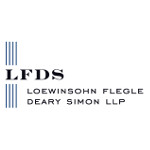When a storm is headed in your direction, it’s critical to prepare for an emergency by making sure you have medical supplies and enough food and water to sustain your family. The aftermath of a storm can be devastating. You should be equally prepared on the insurance front to protect your home and get back on your feet as soon as possible.
Dallas insurance litigator Meloney Perry of Perry Law P.C. offers some storm insurance tips to keep in mind before and after a storm hits.
1. Ensure You Have Adequate Amounts of Insurance and Correct Coverage
Unfortunately, insurance is not a “one size fits all” solution. Simply having insurance coverage sometimes isn’t enough. Educate yourself and understand the adequate types and amounts of insurance that fit your needs.
Extra Credit: Research and compare multiple insurance plans while revisiting your coverage often.
2. Talk with Your Insurance Agent
Do this at least twice a year to revisit coverages—this needs to be done before a storm hits or you may find yourself without coverage you thought you had. Tap into your agent’s knowledge and don’t be shy about asking questions.
Extra Credit: Keep agent information in your telephone and in the cloud for easy access in case of an emergency.
3. Don’t Just Take Out ID Cards, Read Your Insurance Policies
Knowledge is power. If you know what your policy does and doesn’t cover, you’ll be in a better position to work with your insurance carrier. If you don’t understand what is included in our policy, call your agent. (See tip No. 2.)
Extra Credit: Research the Texas Department of Insurance Website for easy Q&A and forms. They’re a great resource.
4. In the Event of Damage or Loss, Take Pictures and Keep All Receipts Handy
Insurance carriers want all the supporting evidence for your claim they can get their hands on. This will allow them to assess the situation and process your claim faster than others.
Extra Credit: Make and keep multiple copies. Upload everything to the cloud for easy access and keep hard copies with a relative or in a fire-proof box.
5. Have A Proof of Loss Form Available for Easy Filing
A proof of loss form will identify the value of the items damaged or lost in the storm. Completing this form quickly and accurately can help with the claims process and avoid possible headaches, such as underpayment, delay or denial of your claim.
Extra Credit: Keep a printout of your insurance policy to determine what to include in the form.







